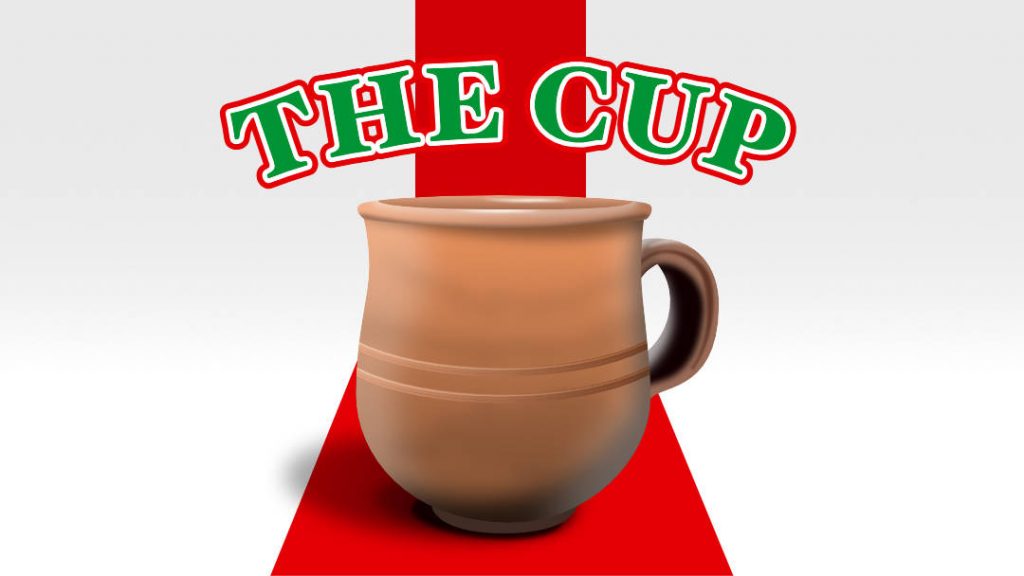Jesus and the cup.
And he went a little further, and fell on his face, and prayed, saying, O my Father, if it be possible, let this cup pass from me: nevertheless not as I will, but as thou wilt.
Matthew 26:39
I want to hypothesize about this cup. It is evident that the cup was the task that Jesus needed to perform. But I think it is a little deeper than that. We need to ask the question of why Jesus was faced with having to bear this burden. I believe it started at His baptism and subsequent temptation in the wilderness. Jesus chose to be obedient to the His Father’s will. To do this, He had to follow certain principles to qualify Himself. He kept the law in its purest form. I cannot state this any better than the apostle Paul did.
“Let this mind be in you, which was also in Christ Jesus: 6 Who, being in the form of God, thought it not robbery to be equal with God: 7 But made himself of no reputation, and took upon him the form of a servant, and was made in the likeness of men:”
Philippians 2:5-7
In a way, Jesus was the cup. He had created the cup. Jesus had become the one worthy of being a propitiation for our sins. He had to drink of the life He created by following the Father.
What does this mean for us?
Jesus left us an example that we should follow (1 Peter 2:21). Therefore we too must make a cup that we must drink from. No, it is not to die for the sins of the world; instead, it is to become trustworthy servants for His kingdom.
Our cup is to be formed the exact same way that Jesus formed His cup.
“But in a great house there are not only vessels of gold and of silver, but also of wood and of earth; and some to honour, and some to dishonour. 21 If a man therefore purge himself from these, he shall be a vessel unto honour, sanctified, and meet for the master’s use, and prepared unto every good work.”
2 Timothy 2:20-21
“For this is the will of God, even your sanctification, that ye should abstain from fornication: 4 That every one of you should know how to possess his vessel in sanctification and honour;”
1 Thessalonians 4:3-4
In these two passages, we notice the concept of sanctification. We also notice it is the responsibility of the individual to perform this action. We must make ourselves a vessel, a cup, that can hold the love and power of God through the Holy Spirit. It is done just the same way Jesus did it. Not with a mental state of believing one is right with God; instead, it is in living.
Our cup is not the human body, though the body plays an important part. The cup is our whole being—body, soul, and spirit. It is the one who has the knowledge to possess the body that we are concerned with. It keeps the body in subjection (1 Corinthians 9:27).
In the Old Testament, God gave the Jews very specific laws for them to use to keep themselves pure. In the New Testament, these laws would be impractical if not impossible to keep, but to keep the essence of them is possible. So instead of structured laws for all people in all cultures, we are given the Holy Spirit.
“Howbeit when he, the Spirit of truth, is come, he will guide you into all truth: for he shall not speak of himself; but whatsoever he shall hear, that shall he speak: and he will shew you things to come.”
John 16:13
So to have a cup that God can fill one needs the Holy Spirit to identify certain ideals within their culture of things they will and will not do. How do you abstain from fornication? It will not happen if you do not have boundaries, lines in the sand, you will not cross. These lines are not going to be exactly the same for each person. Individuals, families, churches will all have to pray and seek wisdom given by the Holy Spirit about what they will and will not do.
Our failure, at least by my observation, is that having standards by which to live are all considered legalistic. Legalism is not having rules; it is when the rule becomes more important than the goal. An example is a man may have a rule not to be alone with a woman who is not his wife. But to not give a ride to a stranded woman because of the rule is legalistic. Most find every excuse they can to violate rules so that it makes no sense to have rules at all.
Without rules to define our sanctification, we are not cups at all or at least cups with gaping wholes. God can work with neither. How is He to fill our cup?
“Fill my cup, Lord
I lift it up, Lord
Come and quench this thirsting of my soul
Bread of Heaven, feed me ’til I want no more
Fill my cup, fill it up and make me whole.”
Jesus had a cup of His own making. It was both a curse and a blessing. His life, His cup, brought humanity and God into harmony. We must also have a personal cup that is defined by yielding to the Holy Spirit. It will be built with practical ways of living that operate by the fruit of the Spirit.

